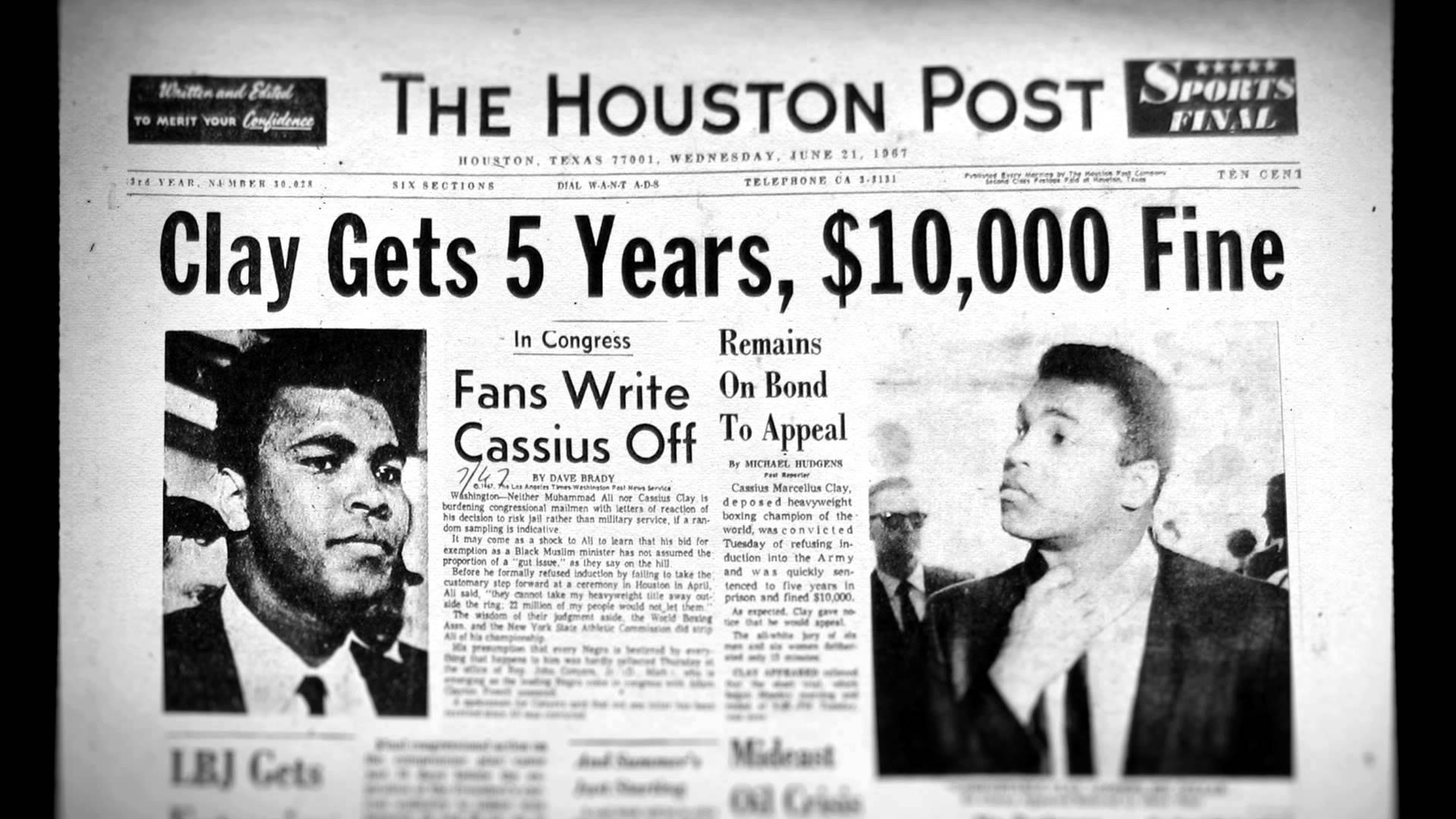Muhammad Ali: The Black Superman Who Became The ‘Greatest’
By Sazzad Hussain
04 June, 2016
Countercurrents.org

Sing, Muhammad, Muhammad Ali,
He floats like a butterfly, stings like a bee,
Muhammad, the Black Superman
Who calls the other guys ‘I’m Ali’
Catch me if you can.
--Johnny Wiklins.
Muhammad Ali, the boxer who took the sport beyond the ring for his own conviction of dignity, equality and human rights is no more. The legend who earned the nickname of Black Superman and icon of the deprived over the privileged fought like a true fighter throughout his life elevate human dignity from the clutches of racism and deprivation to live with heads held high was a personality that dominated the world arena for good reasons.
Born Cassius Clay in the impoverished Louisville, Kentucky in 1942 during the period of segregation in American down south, Ali grew up facing racism and deprivation and poverty despite having immense talent. He won a gold medal in 1960 Rome Olympics in the Light Heavyweight category. By the time he started a professional boxer, the Civil Rights movements were at the peak in America. Ali became the youngest boxer to be crowned World Heavyweight title at the age of 22 in 1964 in which knocked out in 1964. Immediately after that win, which made Ali a celebrity, he got converted to Islam and took the name Muhammad Ali. The conversion was imitated by the Nations of Islam, a black American organization founded by Elijah Muhammad and activated by Malcolm X, a resistance movement against white supremacist and segregated system. Ali famously said that Cassius Clay was his ‘slave name’ when many journalist refused to use his new name after his conversion. Immediately after this America declared war against the Communist Vietnam—the Vietcong drafting young men to enlist in the armed forces. Ali, who had earlier drafted in the army in 1962, refused to go to Vietnam to fight for the new draft of conscription in 1967. He said, "I ain't got no quarrel with them Viet Cong—no Viet Cong ever called me nigger." Consequently Ali was arrested and faced trial. The jury found him guilty but a Court of Appeals upheld the verdict and his case reached the American Supreme Court. The rest is history.
Despite being stripped off all his championships and titles by various American boxing bodies and cancellation of his professional boxing by all American states at the peak of his career, Ali became the symbol of protest, an anti-war activist and a person to inspire millions of Americans. He lost four invaluable years of his professional career during that time and returned victorious as the Supreme Court 8-0 jury verdict overturned Ali’s conviction in 1971. Ali thereafter returned to the ring with bang. He knocked down undefeated champion Joe Frazier in the “Fight of the Century” at Madison Square Garden, New York on 8th March, 1971. By then Ali became the darling of the black people around the world—the most suppressed, deprived and exploited people, mostly from Africa. Taking this point in account, the next heavyweight championship between Muhammad Ali and George Foreman was scheduled in Kinshasa, Zaire. Famously known as the “Rumble in the Jungle” the bout was the symbol of black supremacy so far as human strength was concerned the entire African continent, irrespective of their faith and ethnicity began to regain their lost confidence and dignity. After defeating Foreman, Ali again faced Frazier in 1979 in Manila, the Philippines. Remembered as the “Thrilla in Manila”, that fight was one of the longest boxing duels in the history where Ali had the last laugh. After the match Ali acknowledged Frazier as "the greatest fighter of all times next to me.”
After his retirement from professional boxing Muhammad Ali dedicated his entire life for charitable works across the globe and voicing support to all legitimate demands of the people worldwide. He was an ardent supporter of the anti-apartheid movement in South Africa and poor people in Latin America. He came twice to India, first as a state guest and lately to Kerala in late 1980s for charity drives. The man who once stripped of his sports honours was given the task of lighting the Olympic Flame in 1996 Atlanta games. He was also awarded the highest civilian honour in America; the Medal of the Union by President George W. Bush in 2005 apart from named the “Sportsperson of the Century”.
Now after his departure, Muhammad Ali will always be remembered as a person who stood against the establishment—walking beyond the arena for a cause that matters million. He has proved that if a sports celebrity steps up anything his entire fun would follow him or her and create more followers outside sporting world to make this world better. This is what the legacy of Muhammad Ali so far has been and would continue to be. And that is why he is “The Greatest”.
(The writer is a freelance journalist based in Assam) E;mail: [email protected]

